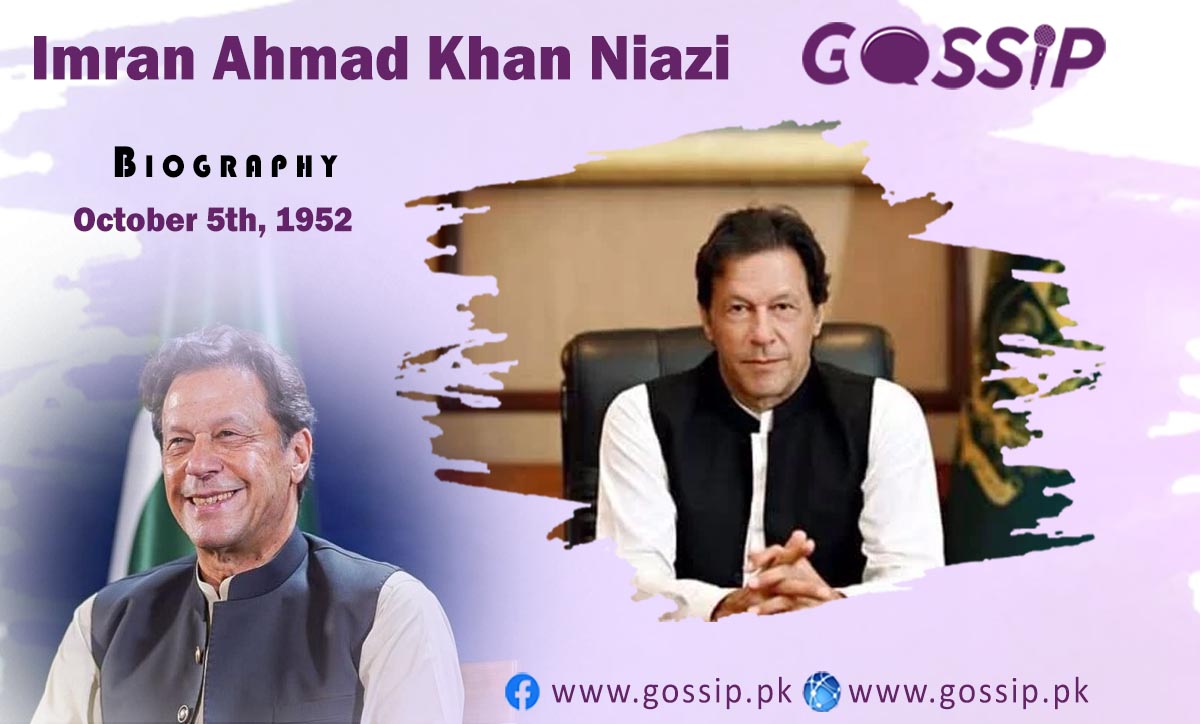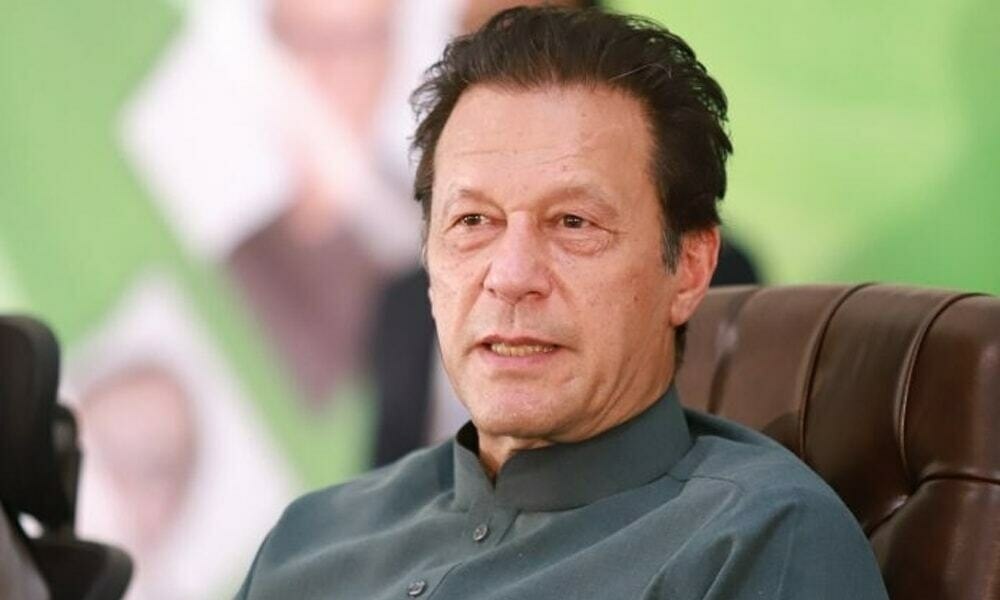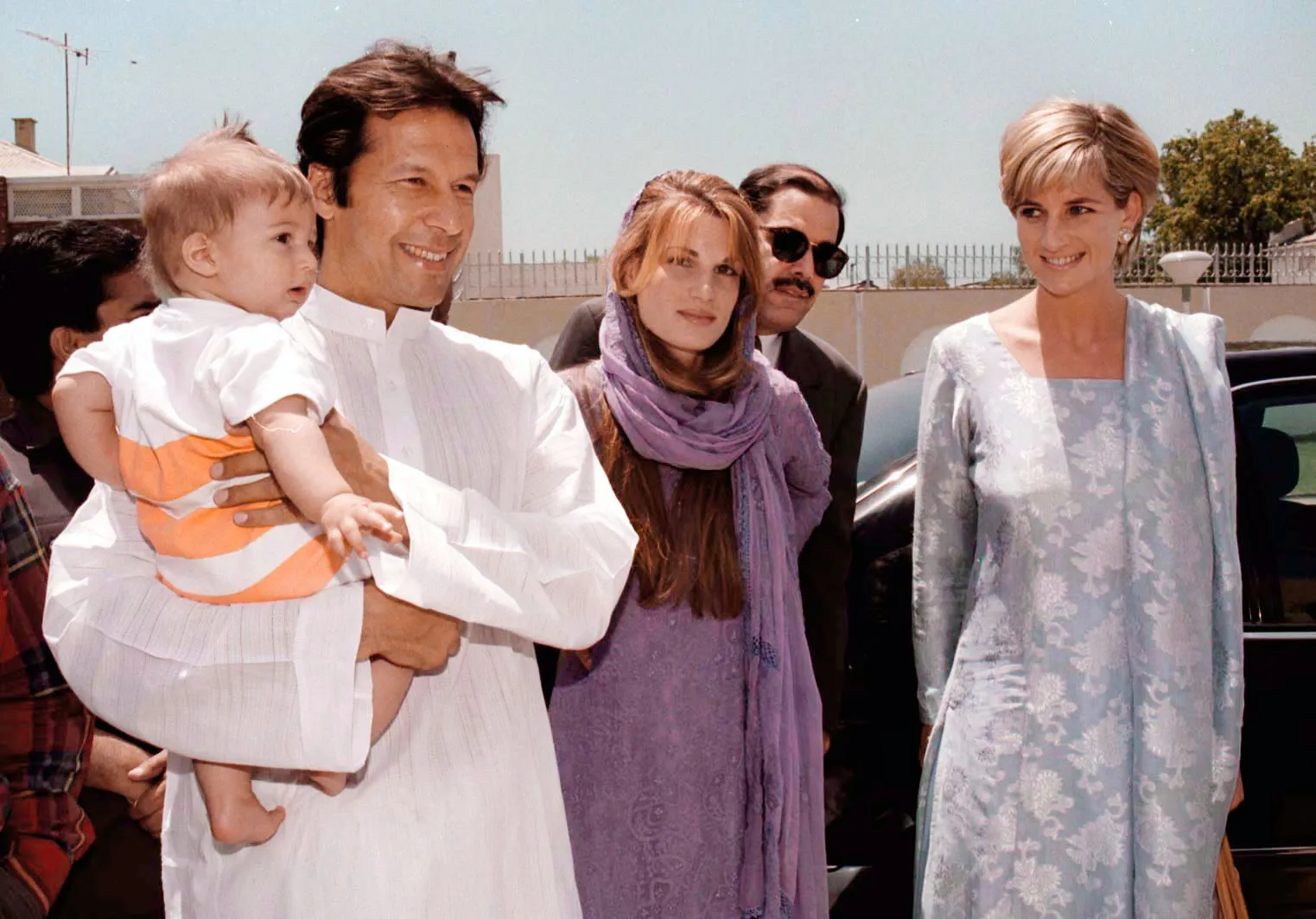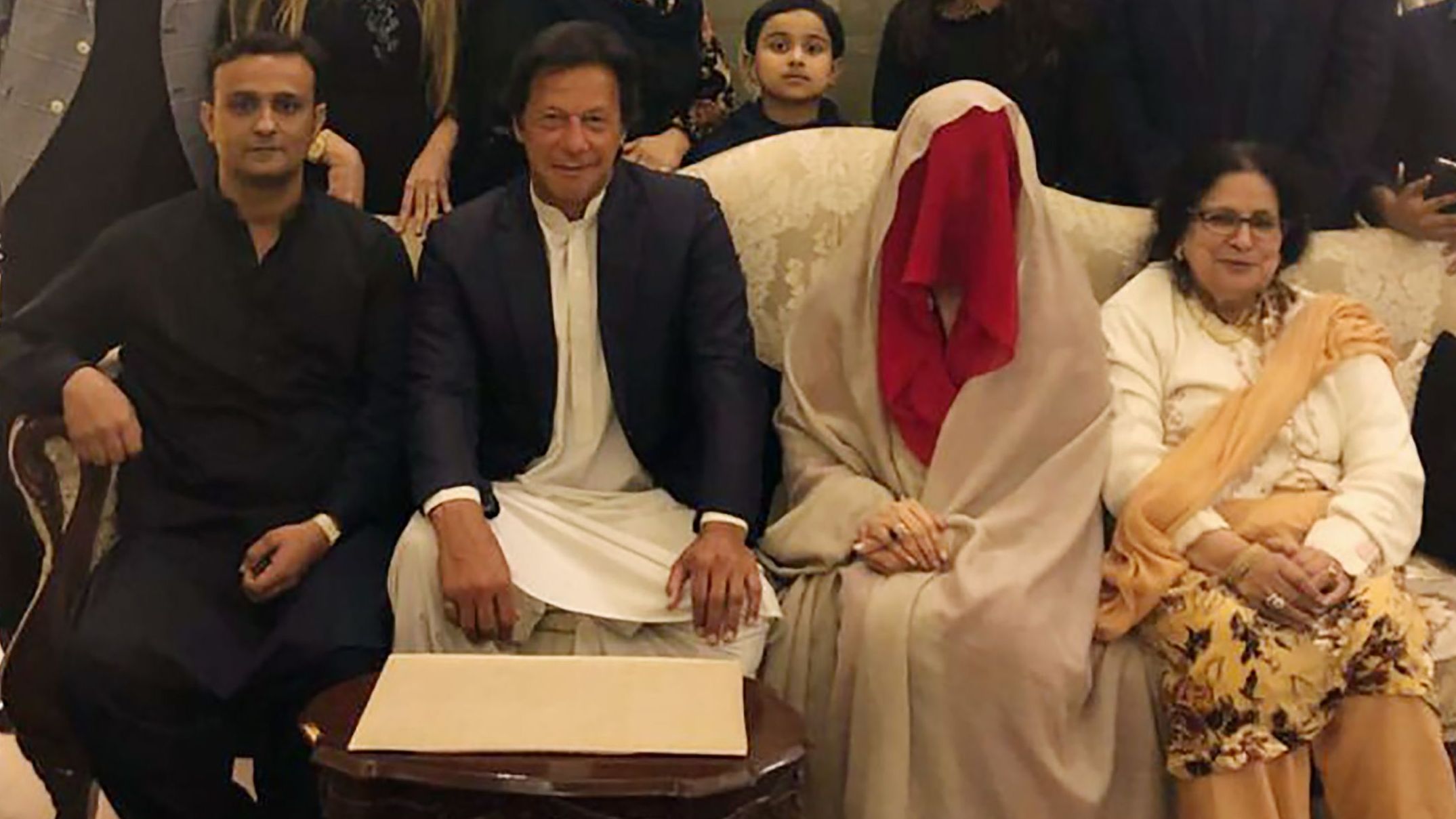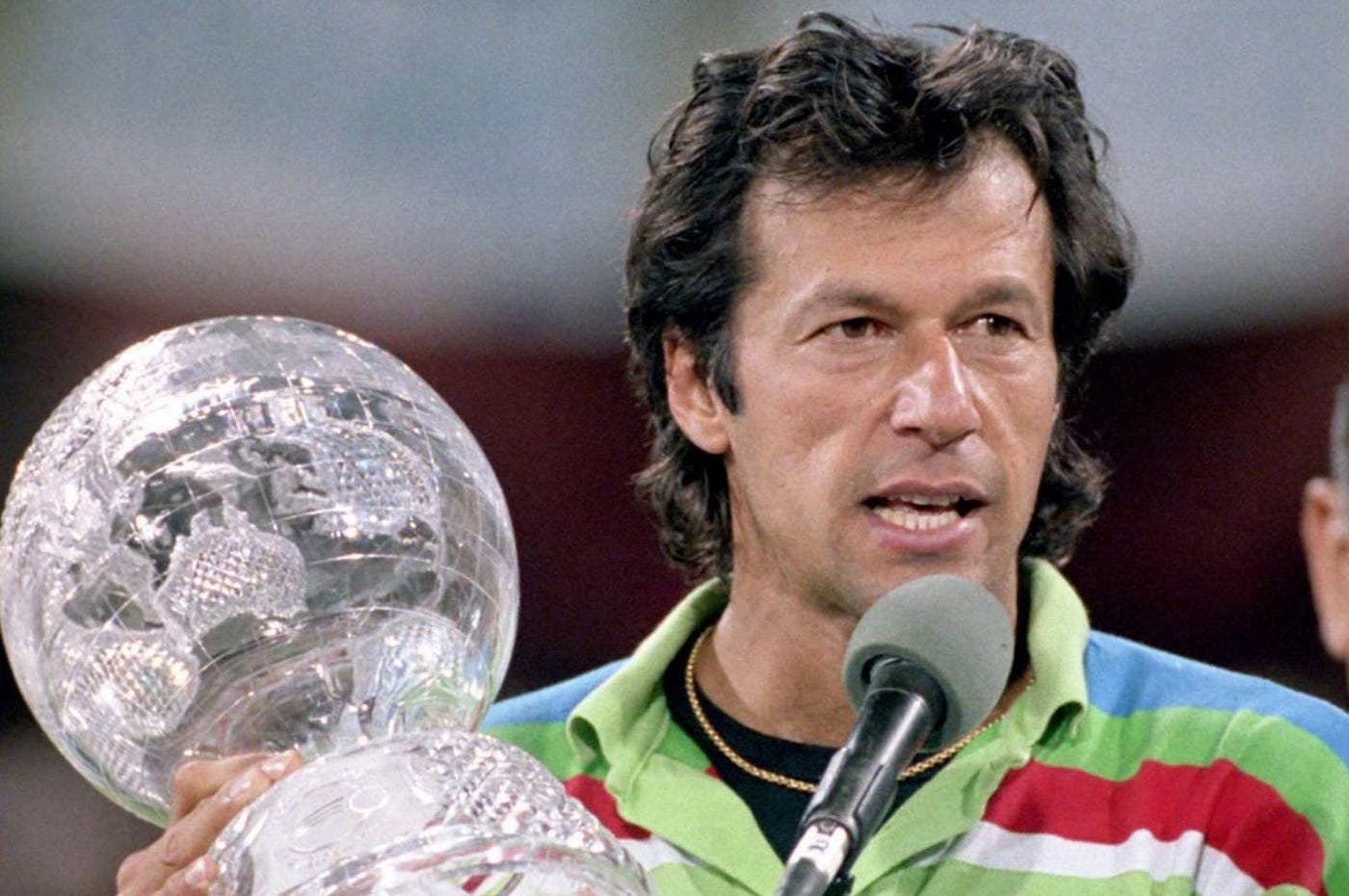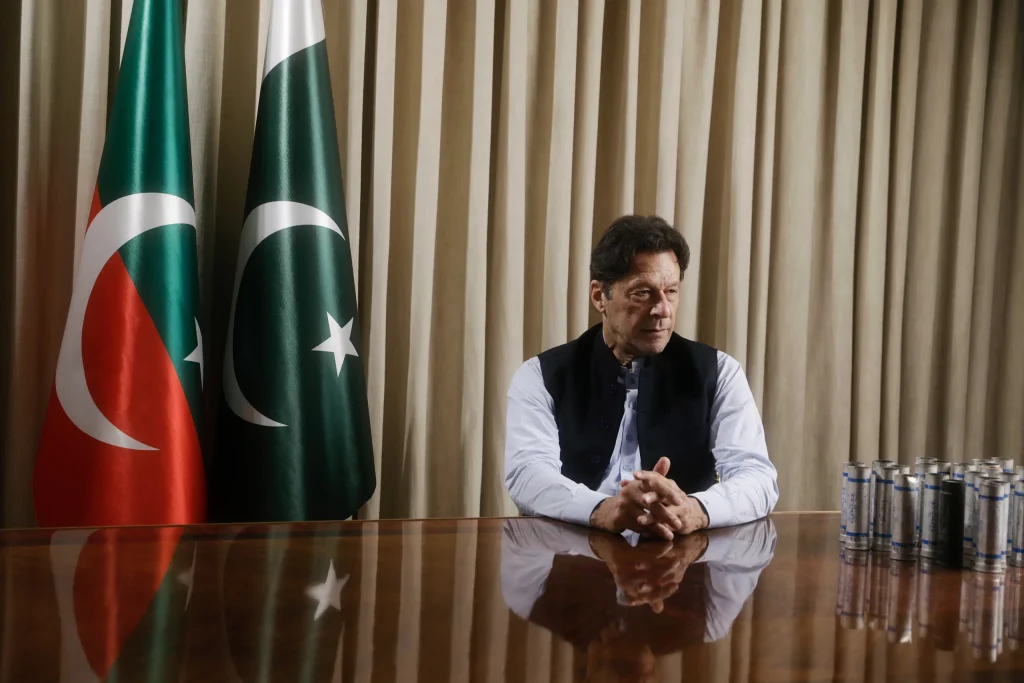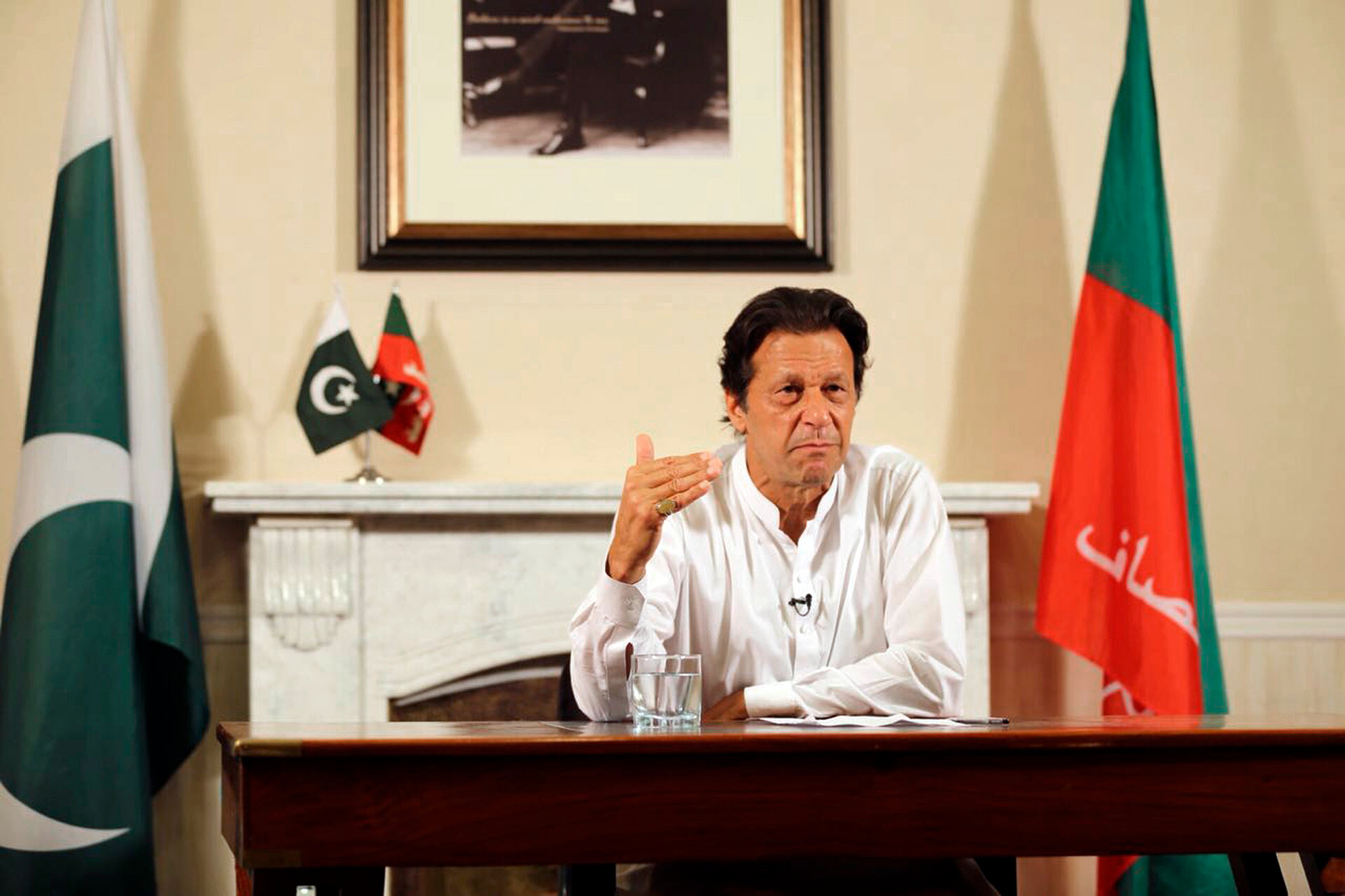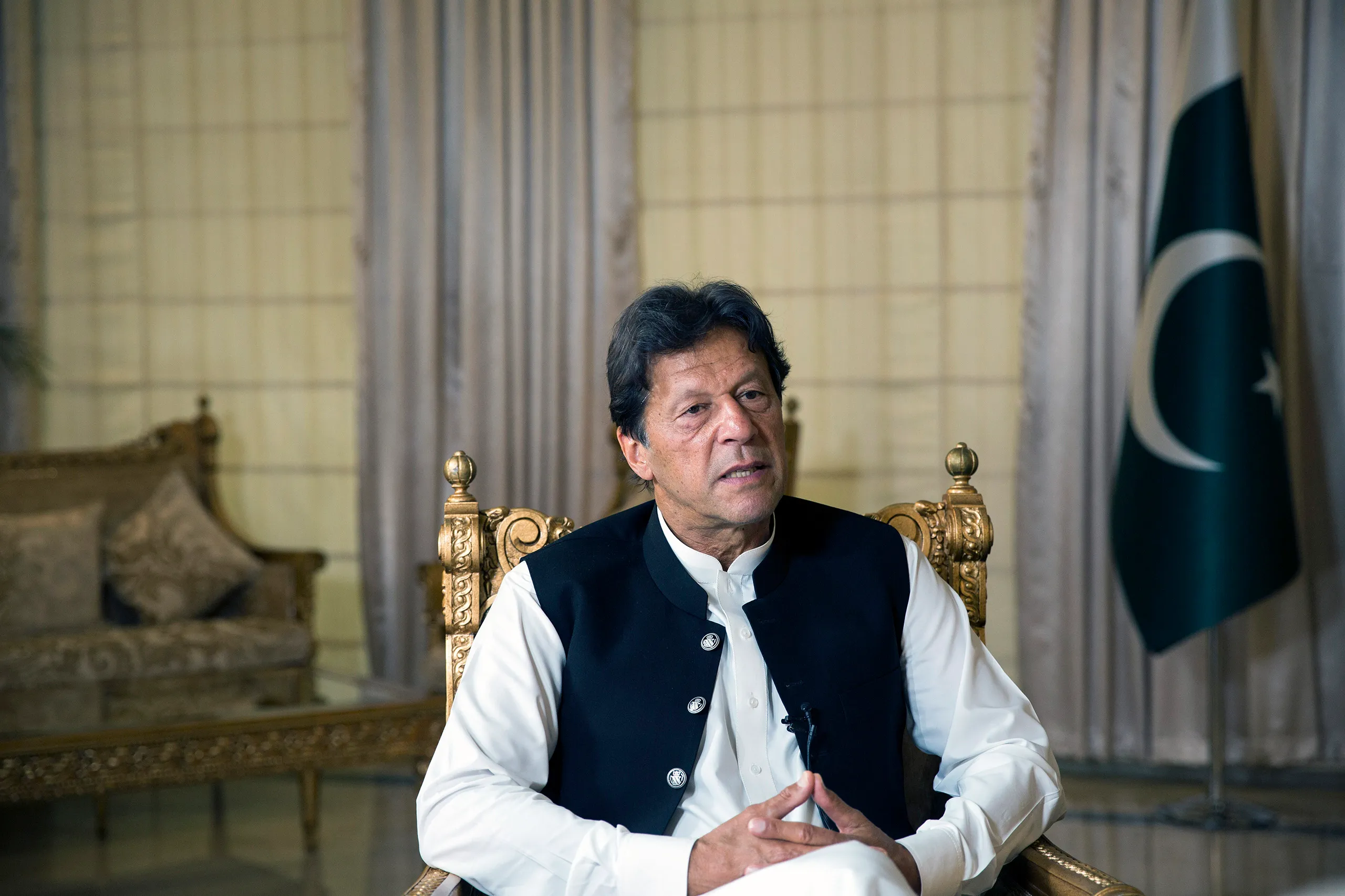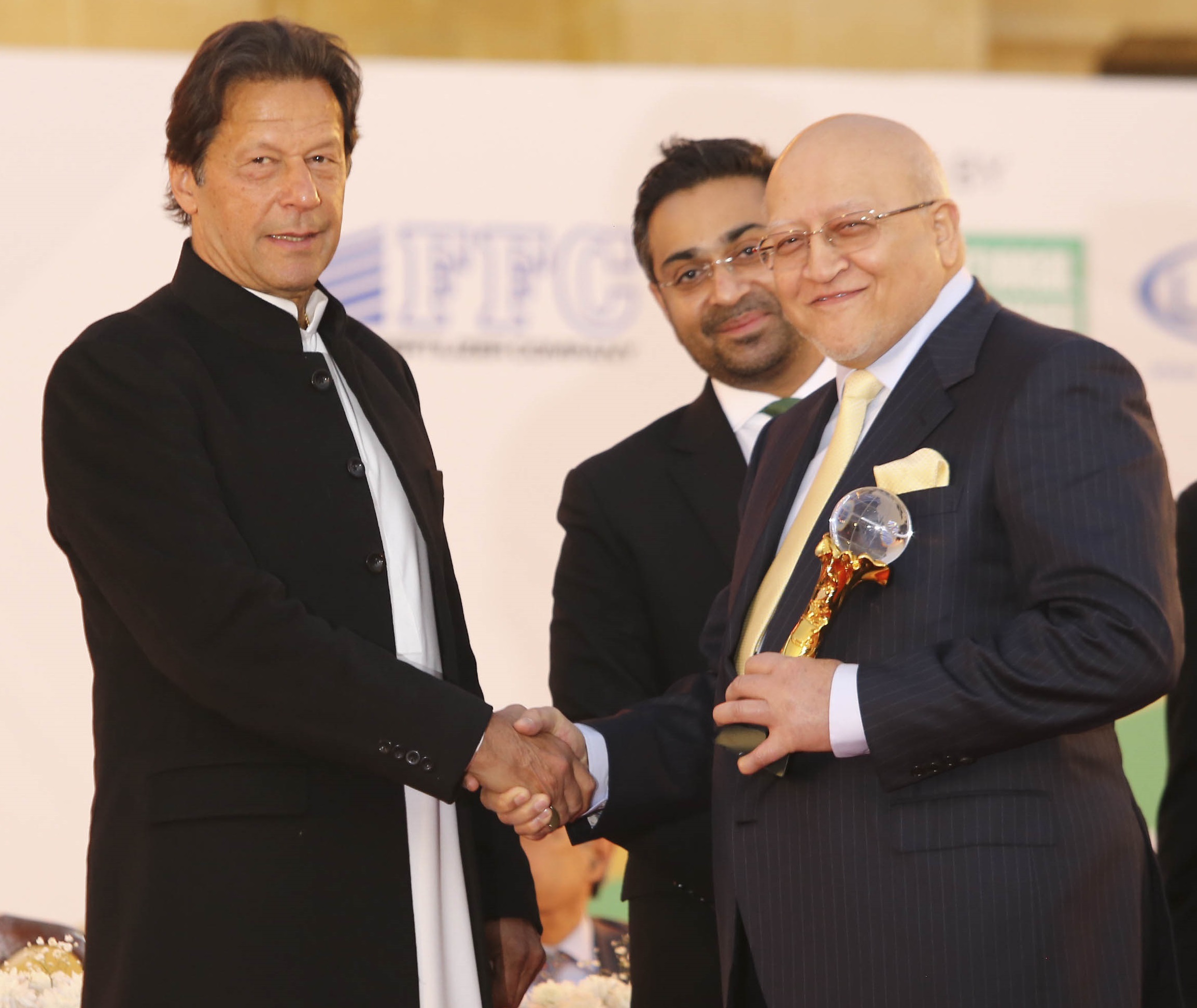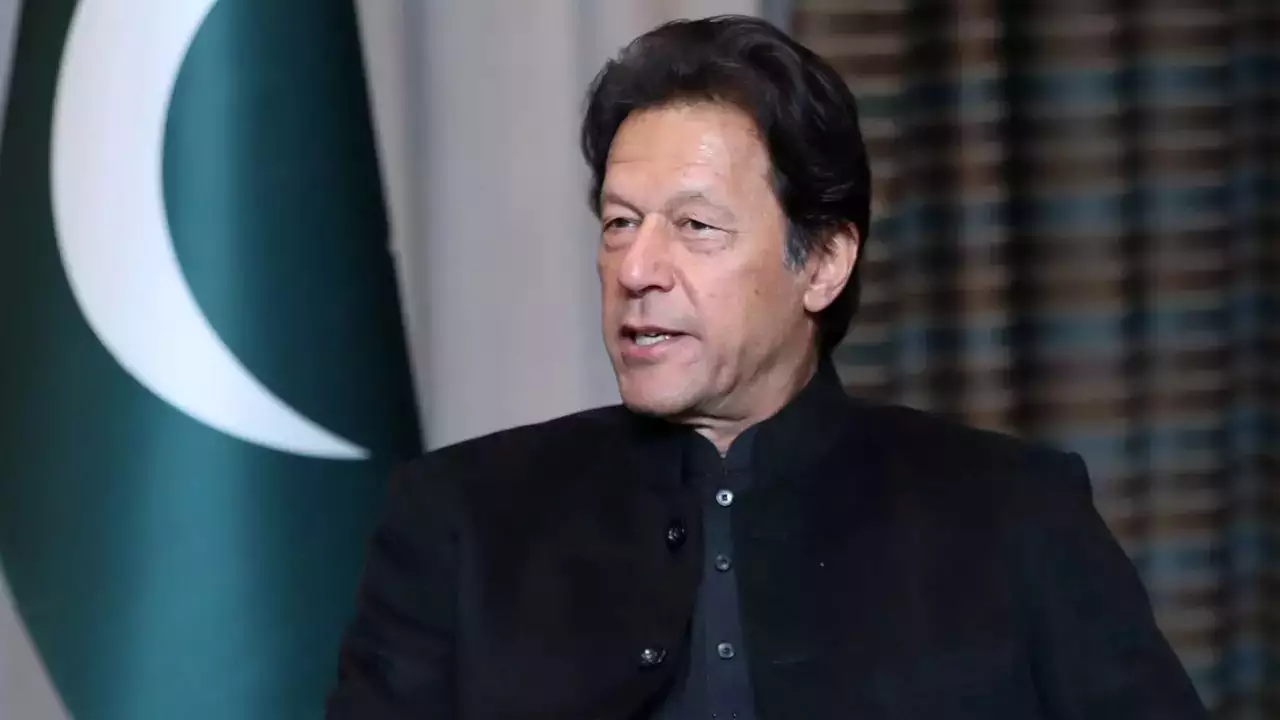| Full Name | Imran Ahmad Khan Niazi |
| Nick Name | Imran Khan |
| Profession | Pakistani Politician and Former Cricketer |
| Date of Birth | October 5, 1952 |
| Birthplace | Lahore, Pakistan |
| Age | 71 years |
| School | Aitchison College, Cathedral School, and Royal Grammar School Worcester in England |
| University | Keble College, Oxford, England |
| Education | Studied philosophy, Politics, and Economics and Graduated with Honours from Keble College, Oxford |
| Nationality | Pakistani |
| Tribe | Naizi |
| Address | Khan House, Bani Gala, Mohra Noor, Islamabad |
| Food Habit | Non-Vegetarian |
| Eye Colour | Hazel Brown |
| Hair Colour | Black |
| Figure Measurement | N/A |
| Hobbies | N/A |
| Religion | Islam |
| Zodiac/ Star Sign | Sagittarius |
| Gender | Male |
| Height | 6 ft 2 in (188 cm) |
| Weight | 75 kg, Approx |
| Father’s Name | Ikramullah Khan Niazi |
| Mother’s Name | Shaukat Khanum |
| Siblings | Aleema Khanum, Rani Khanum, Rubina Khanum, and Uzma Khanum (sisters) |
| Marital Status | Married |
| Wife Name | Bushra Bibi (m. 2018), Reham Khan (m. 2014–2015), Jemima Goldsmith (m. 1995–2004) |
| kids | Sulaiman Isa Khan, Kasim Khan |
| Father-in-Law Name | N/A |
| Sister-in-Law Name | N/A |
| Mother-in-Law Name | N/A |
| Net Worth | Approximately 750 million US dollars |
Imran Khan’s Introduction
Imran Khan, a famous figure from Pakistan, was born on October 5, 1952, which makes him 71 years old as of 2023. He belongs to the Naizi family. He led Pakistan’s cricket team to win the 1992 Cricket World Cup. He served as Pakistan’s 22nd prime minister from 2018 to 2022. He founded and led the political party Pakistan Tehreek-e-Insaf (PTI). Imran Khan’s home is the well-known Bani Gala House in Islamabad.
Imran Khan’s Education
Imran Khan started his schooling at Aitchison College and Cathedral School in Lahore. After that, he went to the Royal Grammar School in Worcester, England, where he was very good at cricket. Later, he attended Keble College at the University of Oxford, studying politics, philosophy, and economics, and graduated in 1975.
Family and Relatives
Imran Khan, a well-known Pakistani personality, comes from a notable family. He was born in Lahore on October 5, 1952, to Ikramullah Khan Niazi, a civil engineer, and Shaukat Khanum. He has four sisters and is the only son in his family. His family belongs to the Niazi Pashtun tribe, which has been settled in Mianwali in northwestern Punjab for a long time. His mother’s family, the Burki Pashtun tribe, emigrated from South Waziristan to Jalandhar, Punjab, a few centuries ago. This maternal side of his family has produced several notable cricketers, including Javed Burki and Majid Khan.
Khan’s sisters are accomplished in their own right. Rubina Khanum, his elder sister, studied at the London School of Economics and worked with the United Nations. Aleema Khanum is an entrepreneur and philanthropist, having founded a textile-buying house in Lahore and being involved in various charitable and social welfare organisations. Uzma Khanum is a qualified surgeon based in Lahore, and Rani Khanum, a university graduate, coordinates charity activities.
Imran Khan’s Marriage, Kids and Divorce
Imran Khan’s personal life includes three marriages. His first marriage was to Jemima Goldsmith, a British socialite, from 1995 to 2004, and they have two sons, Sulaiman Isa Khan and Kasim Khan. In early 2015, his second marriage was to British Pakistani journalist Reham Khan, but it ended in divorce later that same year. In 2018, he married Bushra Bibi, who was his spiritual mentor before their marriage.
Imran Khan’s Cricket Career
Imran Khan first played cricket in Lahore when he was 16. In the early 1970s, he played for several teams in Lahore. He was also on Oxford University’s cricket team from 1973 to 1975.
From 1971 to 1976, he played cricket in England for Worcestershire. During the 1970s, he played for Dawood Industries and Pakistan International Airlines. From 1983 to 1988, he played for Sussex.
His first big international match was against England in June 1971. He became known as one of the world’s fastest bowlers in the late 1970s. He helped develop a special bowling technique called the reverse swing. He shared this technique with other bowlers, like Wasim Akram and Waqar Younis.
In August 1974, he played his first one-day international match against England. After finishing university and playing in England, he returned to Pakistan in 1976. He then became a regular player on the Pakistan national team.
Imran Khan worked hard to become a fast bowler. From 1980 to 1988, he was at his best, taking many wickets in matches. His performance was better than that of many famous bowlers.
In 1983, he reached a high rating as a bowler. Although these ratings were worked out later, he is still considered one of the best. Imran Khan was also a great all-rounder, good at batting and bowling. He reached a special milestone faster than most, except Ian Botham. He has a high batting average for his position.
His last big match was in January 1992 in Pakistan. He retired from cricket after winning the 1992 World Cup. He played many matches, scored many runs, and took many wickets. He set records in both test and one-day international cricket.
Captaincy
In 1982, when Imran Khan was thirty, he became the captain of Pakistan’s cricket team, taking over from Javed Miandad. He was captain in 48 Test matches, where Pakistan won 14, lost 8, and drew 26. He also captained 139 one-day international (ODI) matches, winning 77, losing 57, and tying one.
As captain, Imran Khan led Pakistan to a big win against England at Lord’s, their first in 28 years. His first year as captain was his best as a fast bowler and all-rounder. He took 8 wickets for 58 runs against Sri Lanka, his best performance. In 1982, he was the top player in bowling and batting against England. Later that year, he did well against India, taking 40 wickets in six matches.
However, he got a stress fracture during the India series, which kept him out of cricket for over two years. After receiving treatment that the Pakistani government had paid for, he returned in late 1984.
In 1987, Khan led Pakistan to win a test series in India and England. In the 1980s, his team drew three times against the West Indies. Pakistan co-hosted the 1987 Cricket World Cup but didn’t make it past the semi-finals. Imran Khan retired from international cricket after this World Cup.
In 1988, Pakistan’s president asked him to be captain again. He agreed and led Pakistan to another win in the West Indies. He played well, and he was named the best player in the series. Imran Khan’s biggest achievement was leading Pakistan to win the 1992 Cricket World Cup. He was a good batsman and bowler in the tournament, and he took the winning wicket himself at 39 years old.
Imran Khan: Post-retirement from cricket
After he stopped playing cricket, Imran Khan said that sometimes he would scratch the ball and lift the seam a little during games. In 1996, he was in a court case because two English cricketers, Ian Botham and Allan Lamb, said Khan called them names and cheated in games. Imran Khan said he didn’t say those things and was just explaining why he once changed the ball in a game 18 years ago. Imran Khan won the case, and the judge said it was a waste of time.
After retiring, Imran Khan wrote articles for newspapers like The Guardian, The Independent, and The Telegraph. He also talked about cricket on TV and radio, like BBC Urdu and TEN Sports, and gave summaries of all the Cricket World Cups since 1992.
On November 23, 2005, he became the head of the University of Bradford. But in 2014, there was a plan to remove him because he had missed all the graduation ceremonies since 2010. Khan decided to leave the job in November 2014 because he was getting more involved in politics.
Imran Khan’s Political Career
During his cricket career, Imran Khan was offered political roles a few times. 1987 President Muhammad Zia-ul-Haq asked him to join the Pakistan Muslim League (PML), but he said no. Nawaz Sharif also invited him to join his party, but Imran Khan didn’t.
In 1993, Khan became the tourism ambassador for Moeenuddin Ahmad Qureshi’s short-term government. He worked there for three months. In 1994, he joined a group called Pasban-e-Pakistan, which was part of Jamaat-e-Islami.
On April 25, 1996, Imran Khan started his own political party, Pakistan Tehreek-e-Insaf (PTI). He tried to win a seat in the National Assembly in 1997 but didn’t succeed.
Imran Khan supported General Pervez Musharraf’s takeover in 1999. He thought Musharraf would stop corruption. Musharraf wanted Imran Khan to be prime minister in 2002, but Khan said no. In the 2002 elections, Khan did win a seat from Mianwali. He supported Musharraf in a 2002 referendum, too.
He was part of committees on Kashmir and public accounts. In 2005, he drew attention to a news story about the Qur’an being disrespected in a U.S. prison.
In October 2007, Imran Khan quit Parliament with others to protest Musharraf’s presidential election. In November 2007, he was put under house arrest, escaped, and then got caught at a student protest. He was in jail for a few days.
In 2011, Imran Khan held big rallies in Lahore and Karachi. These made him a strong political figure. A survey showed his party, PTI, was very popular.
In October 2012, Imran Khan protested against U.S. drone strikes. In 2013, he started his election campaign with the Naya Pakistan Resolution. His party became the main opposition to the PML-N. Imran Khan and Nawaz Sharif had a big rivalry, especially from 2011 to 2013. Both parties criticised each other a lot before the 2013 elections.
Elections Campaign – 2013
On April 21, 2013, Imran Khan started his last big effort to get support for the 2013 elections in Lahore. He spoke to many people there. He said he would take Pakistan out of the U.S.-led fight against terror and make peace in the Pashtun tribal area. Imran Khan went to many cities in Khyber Pakhtunkhwa and other parts of Pakistan. He said his party, PTI, would make one education system for all children, whether they were rich or poor. He finished his campaign in the south Punjab area.
Imran Khan’s last rally was in Islamabad, but he had to talk to his supporters through a video because he was in a hospital in Lahore. Before the elections, a survey showed that almost 25% of voters wanted to vote for his party, very close to Nawaz Sharif’s PML-N party.
On May 7, just a few days before the elections, Imran Khan fell off a forklift and hurt his head. He was taken to a hospital in Lahore. The elections on May 11, 2013, ended with the Pakistan Muslim League (N) getting the most votes. Khan’s party, PTI, got the second most votes overall and was the third biggest party in the National Assembly, after the Pakistan People’s Party.
Election General – 2018
Elections campaign – 2018
Imran Khan ran for election in five areas: NA-35 (Bannu), NA-53 (Islamabad-II), NA-95 (Mianwali-I), NA-131 (Lahore-IX), and NA-243 (Karachi East-II). Early results showed he was leading, but his main opponents from the PML-N party said there were problems with the voting.
On July 27, officials said Khan’s party, PTI, won 110 out of 269 seats. This was the most seats, but not a majority. By July 28, he had won 116 seats. Imran Khan was the first person in Pakistan to run in five areas and win them all. Before him, Zulfikar Ali Bhutto ran in four areas in 1970 but only won in three.
In May 2018, Khan’s party shared a plan for what they would do if they won. This plan included big changes in government, like making a new province in Southern Punjab, adding tribal areas to Khyber Pakhtunkhwa, improving safety in Karachi, and working better with Baloch political leaders.
Post-2018 election reaction
Many opposition parties said there was unfair help for Imran Khan in the elections. They thought the military was involved. Nawaz Sharif and his party, PML-N, said there was a plan between the courts and military to help Khan and his party, PTI. But the Election Commission said these claims were not true. Later, Nawaz Sharif and his party accepted that Khan won, but they still had doubts about the results.
Two days after the elections in 2018, a European Union observer, Michael Gahler, said that the elections were mostly okay.
Imran Khan’s Speech After Winning 2018 Elections
In his speech after winning, Imran Khan talked about his plans. He wants Pakistan to be a caring country, like the first Islamic state of Madina. He plans to focus on helping poor people and making their lives better. He also said he would look into claims of unfair election practises. He wants a united Pakistan and won’t target his political rivals. He claimed that the law would treat everyone equally. He wants a government that doesn’t spend too much money and will use the prime minister’s house for education and the governor’s house for the public.
About foreign policy, Khan spoke well of China and wants better relationships with Afghanistan, the United States, and India. He plans to keep a balanced relationship with both Saudi Arabia and Iran.
Prime Minister of Pakistan
Imran Khan became the Prime Minister of Pakistan on August 18, 2018, and served until April 10, 2022. He was the 22nd Prime Minister of the country. Khan, a former cricket star and founder of the Pakistan Tehreek-e-Insaf (PTI) party, entered politics with a focus on reform and fighting corruption. His election as Prime Minister was a significant change in Pakistan’s political landscape, marking the rise of a new leader with a background in sports and philanthropy rather than traditional political roots. His tenure as Prime Minister was noted for efforts to address various internal and external challenges facing Pakistan.
After the Premiership
After Imran Khan was removed from his position as Prime Minister of Pakistan in April 2022 through a no-confidence motion, the country experienced significant political unrest. This unrest began when opposition parties joined to submit a no-confidence motion against Khan’s government. Following his ouster leaked information suggested that the U.S. government had secretly encouraged Khan’s removal, offering better relations if he was ousted and threatening isolation otherwise.
Post-premiership, Khan called for early general elections, which escalated after the PTI, Khan’s party, dissolved two provincial assemblies, leading to elections in a significant part of Pakistan. These actions received a positive response from the public, with a Gallup survey showing Khan as the most popular political leader in Pakistan at the time.
However, Khan faced legal challenges, too. He was arrested in May 2023 at the Islamabad High Court, which led to nationwide protests by his supporters. Two days later, the Supreme Court released him. He was arrested again in August 2023 on charges related to the sale of state gifts, and the Islamabad High Court later suspended his sentence.
Imran Khan’s Latest Controversy
- Mishandling of Classified Information: In 2022, Imran Khan was charged under Pakistan’s Official Secrets Act for allegedly mishandling a classified diplomatic cable, which he revealed publicly at a rally in March 2022. This action led to a constitutional crisis in Pakistan.
- Defamatory Remarks Against the Army: Khan faced criticism from Pakistan’s military for defamatory statements about the appointment of the new military chief. He accused the government of trying to appoint a ‘favourite’ as the next army chief, leading to a strong reaction from the military’s media wing and condemnation from the ruling coalition.
- Disqualification from Parliament: The Election Commission of Pakistan found Khan guilty of “corrupt practices” in 2022 and disqualified him from being a member of parliament. The case against him involved the accusation that he had bought gifts from the state gift depository (Toshakhana) but did not disclose these assets in his declarations to the commission.
These controversies have had significant political repercussions for Khan and have been a part of the ongoing political narrative in Pakistan.
Imran Khan’s Award and Achievements
National Awards
In 1992, with Khan as captain, Pakistan won the Cricket World Cup for the first time. For winning the World Cup, he got the Hilal-e-Imtiaz, a big award from the Pakistani government. In 1983, he also got the President’s Pride of Performance award. IHe was the leader of Pakistan’s cricket team three times: from 1982 to 1983, 1985 to 1987, and 1989 to 1992.
International Awards
In December 2019, Imran Khan received the top award in Bahrain, the King Hamad Order of the Renaissance. King Hamad bin Isa Al-Khalifa gave it to him at the Sakhir Palace.
Sporting International Awards
- The best all-rounder in English cricket in 1976 and 1980.
- Wisden Cricketer of the Year in 1983.
- Sussex Cricket Society Player of the Year in 1985.
- Indian Cricketer of the Year in 1990.
- He was honoured in the International Cricket Council Hall of Fame twice, in 2004 and 2010.
- He received the Asian Cricket Council’s first big award in 2008.
Other Achievements
- Shaukat Khanum Hospital: Imran Khan founded this hospital in 1994 in Lahore to provide free cancer treatment to the poor. More hospitals under this trust were later opened in Peshawar and Karachi.
- Namal University: Established by Imran Khan in 2008 in Mianwali, this university offers education in various fields like engineering, science, and business, focusing on students from diverse backgrounds.
Books Written by Imran Khan
- Imran: The Autobiography of Imran Khan (1983)
- Imran Khan’s Cricket Skills (1989)
- Indus Journey: A Personal View of Pakistan (1991)
- All Round View (1992)
- Warrior Race: A Journey Through the Land of the Tribal Pathans (1993)
- Pakistan: A Personal History (2011)
Imran Khan’s Net Worth
Imran Khan, a famous person in Pakistan, has a lot of money. His total wealth is about 750 million US dollars. This means he is very rich. He made this money from different things, like his career in cricket, working in politics, and other activities. Being so wealthy, he is one of the richest people in his country. This money shows how successful he has been in his sports and political career, as well as in other areas.
FAQs
What is Imran Khan’s qualification?
Imran Khan attended Aitchison College and Cathedral School in Lahore, Pakistan. After that, he went to the Royal Grammar School in Worcester, England, where he was very good at cricket. In 1972, he started college at Keble College, Oxford in England. There, he studied three subjects: Philosophy, Politics, and Economics. He finished his college studies in 1975.
How many books did Imran Khan write?
Imran Khan has written six books. These books cover a range of topics, including his cricket career, his political journey, and his views on Pakistan's history and society. Each book reflects a different aspect of his life and experiences, from sports to politics.
What is the post of Imran Khan in Pakistan?
He has been in charge of Pakistan Tehreek-e-Insaf, or PTI, since he founded it in 1996.
What happened to Imran Khan in Pakistan?
Pakistan's ex-PM Imran Khan was arrested after a court sentenced him to three years in jail for illegally selling state gifts.
When did Imran Khan become PM?
On August 18, 2018, Imran Khan was sworn in as the country's 22nd prime minister.
What is the net worth of Imran Khan?
Approximately 750 million US dollars
